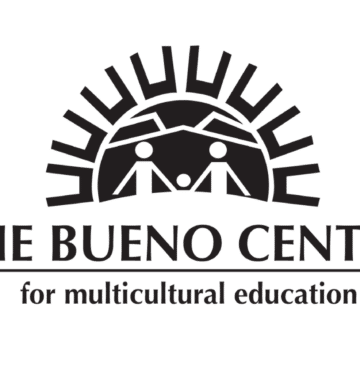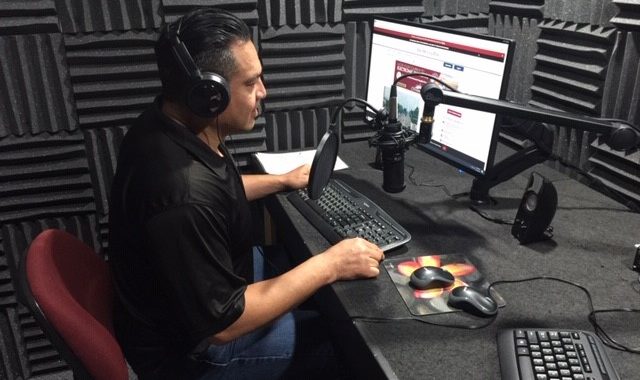


Thursday, October 8th, 2020
By Sabine Kortals Stein
“We enable folks who are visually impaired – or have other difficulties reading – to connect to their communities,” says Kim Wardlow, Executive Director of the Audio Information Network of Colorado (AINC). “We bring print to life through free access to audio broadcasting, also for people who may not have access to print material, sometimes missing information that the rest of us can access.
“Especially with COVID, we’re trying to get information out to folks who might not be able to read a website, or who don’t have a screen reader to read the website for them. There’s so much information on the web – we provide CDC information, as well as local information and resources.”
AINC’s round-the-clock recorded programming also provides information about everything from accessible voting to day-to-day grocery ads. “For some folks who aren’t able to read, knowing what’s on sale can be really important,” continues Kim, who served as Marketing Director for AINC for 17 years before taking over as Executive Director in 2018 when AINC founder David Dawson retired.
“Even if you’re not blind, you may have enough vision loss that it’s hard to read, especially for a length of time. We also serve folks with physical disabilities – like MS or Parkinson’s – where it’s hard to hold something, as well as people with learning disabilities like dyslexia, or people dealing with cognitive issues, or the after-effects of a stroke, or limited literacy.”
Additionally, thanks to some 150 volunteer readers (even some from out-of-state, via VolunteerMatch), AINC provides content in both English and Spanish, and limited Mandarin – including information about Medicare, Social Security, healthy living, public service announcements, and news and community events from state and local newspapers, newsletters, and magazines.
“People are familiar with audio books, but they don’t think about audio for other types of information – like an Alzheimer’s Association brochure, or a magazine. It takes some explaining, and outreach is a challenge for us. People don’t always identify that what we provide is a community need,” adds Kim.
In response, with in-person outreach at resource fairs and the like on hold, AINC is getting creative. “We’re reaching out to senior communities and other nonprofits that are serving the same individuals we’re serving,” she says. “We’ve also done some virtual resource fairs and networking, even some virtual presentations.”
AINC listeners – some 1,300 registered users – can tune in by calling on the phone, or listening to online podcasts, digital radio (i.e., live streams sans Internet), or Amazon Alexa. Volunteers also provide listening equipment, setup, training, referrals to other organizations providing life skills, and “reassurance calls.”
“We’re always trying to have better engagement with our listeners, as well as develop partnerships with other nonprofits,” explains Kim. “At the same time, we’re looking toward the future and soliciting input.”
To that end, AINC is currently working with SVP Partner Roland Evans to refine its organizational values. “Last year, we did some work with our board on our vision and mission, but we haven’t done the values piece in the past. We’re looking forward to working with Roland.”